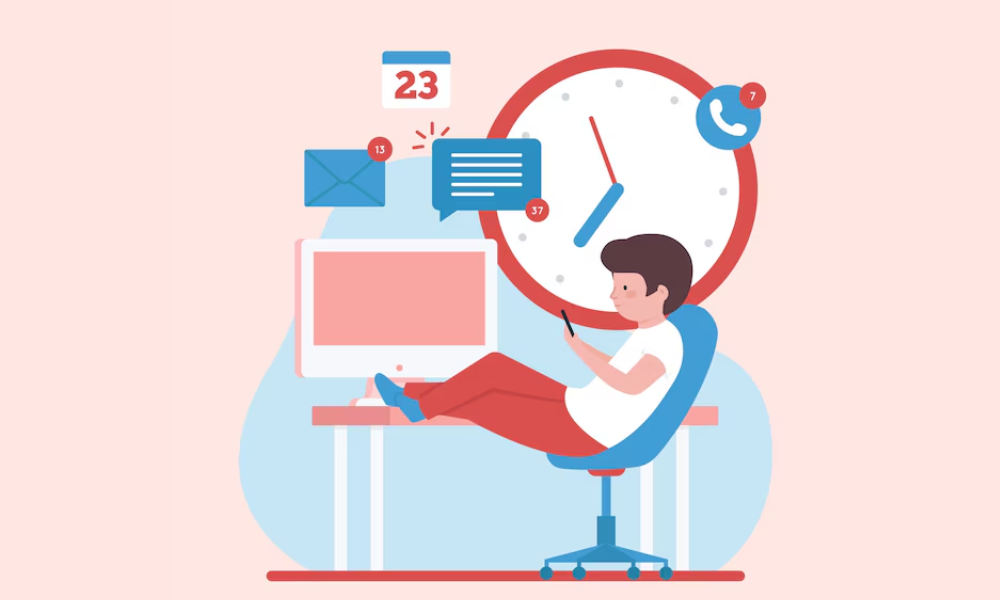Exam season is around the corner, and effective exam study hacks can be the difference between just passing and truly excelling.
From creating a Smart study environment to mastering recall techniques, we’ll cover everything you need to study smarter, not harder.
Setting Up Your Ideal Study Environment

A productive study environment is essential for success. Here are some exam study hacks to make the most of your surroundings.
Find the Right Space to Study
- Eliminate Distractions: Choose a quiet, clean space with minimal distractions. Whether it’s a library or a quiet room at home, make sure it’s an area where you can focus.
- Organize Your Study Area: Declutter and organize your desk with only the essentials. This helps to minimize distractions and allows you to dive right into your study materials.
Optimize Lighting and Comfort
- Use Natural Light: Natural light has been proven to enhance focus and reduce eye strain. Position your desk near a window for a mood boost during study sessions.
- Comfortable Seating: Invest in a good chair that provides proper back support, especially if you plan on studying for long periods. Comfort is crucial for maintaining focus and preventing fatigue.
Implementing Effective Study Techniques
Try the Pomodoro Technique for Focused Sessions
- Work in Intervals: One of the most popular exam study hacks is the Pomodoro Technique, which involves studying for 25 minutes, then taking a 5-minute break. This helps keep your focus sharp and prevents burnout.
- Stay Consistent: Regular study intervals can make it easier to retain information over time, especially when done daily.
Active Recall and Spaced Repetition
- Engage with the Material: Rather than just re-reading, challenge yourself to recall the material from memory. Use flashcards or self-quizzes to make this process engaging.
- Spaced Repetition for Long-Term Retention: Schedule reviews of the material over increasing intervals. Apps like Anki and Quizlet are excellent for incorporating spaced repetition into your study routine.
Use Mind Maps to Organize Complex Information
- Visual Learning: Start with the main topic in the center and branch out into subtopics. This helps you visualize the information, making it easier to understand and remember.
- Connect the Dots: Mind maps can also help you connect related concepts, which is particularly useful for subjects with interrelated topics.
Overcoming Procrastination

Eat the Frog First Thing in the Morning
- Tackle Difficult Tasks Early: Begin your study sessions with the hardest subject or topic. This technique, known as “eating the frog,” can boost your motivation and make the rest of your study time feel more manageable.
- Set Daily Goals: Having a plan of what you want to accomplish helps to stay on track and provides a sense of satisfaction as you check off each task.
Limit Digital Distractions
- Use Productivity Apps: Apps like Focus@Will and StayFocusd can block distracting websites and apps, allowing you to concentrate on your studies.
- Place Your Phone Out of Reach: One of the simplest exam study hacks is to keep your phone in another room, so you’re not tempted to check it constantly.
Make a Daily Study Schedule
- Plan Ahead: Organize your week by blocking out dedicated study times. Sticking to a consistent routine can build momentum and make studying a habit.
- Prioritize High-Impact Tasks: Focus on the most important topics first, and use the remaining time for review. Prioritization helps ensure you’re well-prepared for the main points likely to appear on the exam.
Boosting Memory Retention with Exam Study Hacks
Teach Back the Material
- Explain Concepts to Someone Else: Teaching others is one of the best ways to reinforce your understanding. Try explaining what you’ve learned to a friend or family member.
- Use the Feynman Technique: Break down complex concepts into simple terms, and use analogies if possible. If you can teach a topic in your own words, it means you truly understand it.
Use Mnemonics and Visualization
- Create Acronyms and Mnemonics: Use mnemonic devices to help remember key facts and lists. Creating a funny or memorable phrase can make it easier to recall information during the exam.
- Visualize Information: Try associating facts with vivid mental images. Visualization can be especially helpful for retaining information on topics like history, science, or language.
Practice Mindfulness for Stress Reduction
- Use Guided Meditation Apps: Apps like Headspace and Calm offer guided meditations to reduce stress and improve focus. Incorporate a short meditation before studying to help clear your mind.
- Focus on Deep Breathing: If you’re feeling overwhelmed, take a few minutes to breathe deeply. This simple practice can calm nerves and improve concentration.
Preparing for Exam Day with Exam Study Hacks
Simulate Real Exam Conditions
- Take Practice Exams Under Timed Conditions: Replicating the exam environment is one of the most effective exam study hacks. Use a timer and complete practice tests without any interruptions.
- Set Up a Quiet Space: Try to simulate the exam room setting as closely as possible. Use the same materials and minimize distractions, so you feel comfortable and prepared.
Develop a Time Management Strategy for the Exam
- Allocate Time per Question: Before starting the exam, quickly review the questions and assign time limits. This strategy helps ensure that you don’t spend too much time on any single question.
- Tackle Easy Questions First: Building momentum with easy questions can give you the confidence to tackle more challenging ones.
Don’t Forget Self-Care
- Get a Full Night’s Sleep: Rest is essential for memory consolidation. Avoid last-minute cramming, which can reduce the effectiveness of sleep on memory retention.
- Eat a Balanced Meal: Have a nutritious meal before the exam to keep your energy steady. Avoid sugary snacks that can lead to energy crashes.
Conclusion: Put These Exam Study Hacks to Work
By integrating these exam study hacks into your routine, you can optimize your study sessions, enhance memory retention, and walk into your exams with confidence.
From mastering the Pomodoro Technique to creating the perfect study environment, these strategies offer practical ways to study smarter, not harder.
Remember, consistent effort, mindful preparation, and a positive mindset can make a significant difference in your exam performance. Start using these tips today, and transform your study habits to achieve academic success!












